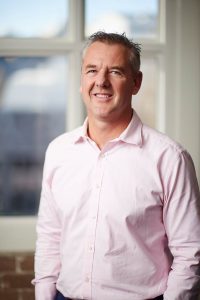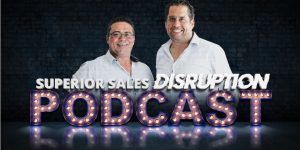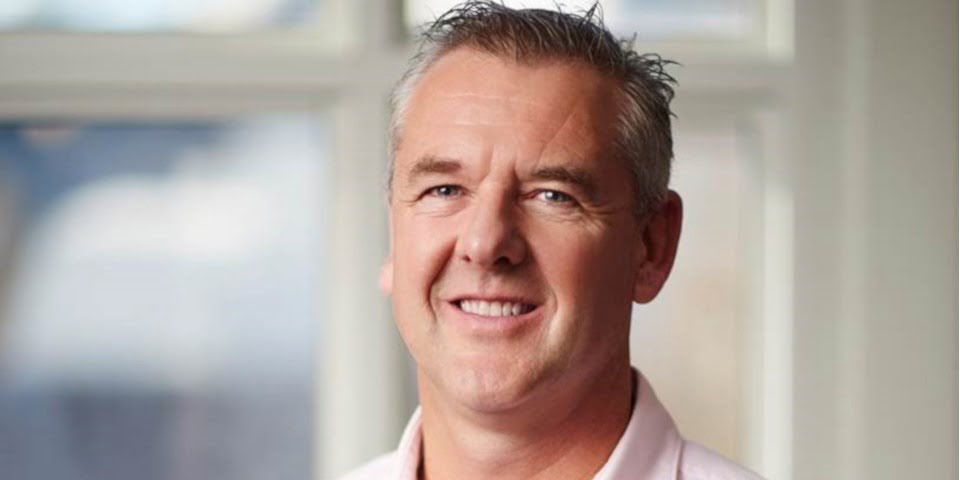 Superior Sales Consulting’s Disruption Podcast series shares the stories behind some of the biggest disruptors in FMCG. Retail World has compiled highlights from Episode 3 ‘Playing to Distinctive Strengths’, which interviews Stuart Alexander & Co CEO Nick Nairn (right).
Superior Sales Consulting’s Disruption Podcast series shares the stories behind some of the biggest disruptors in FMCG. Retail World has compiled highlights from Episode 3 ‘Playing to Distinctive Strengths’, which interviews Stuart Alexander & Co CEO Nick Nairn (right).
Could you give a quick snapshot of where you grew up, went to school and how you started in the industry?
I’m based up in Sydney now, but actually grew up down in Melbourne. I had many opportunities to travel overseas in between school and uni, and then between university and starting my career, so I’ve probably spent more time out of Melbourne than in Melbourne now. But from my perspective, getting an opportunity to experience different things and travel the world on the tourist dollar, as well as a work opportunity, is something very important to me.
Where did your career start?
I actually worked for about six months in recruitment, which I worked out very quickly was not what I wanted to do. But if you want to do a hardcore sales job, try working temporary banking recruitment in London – you’ll get knocked back about 500 times a day. I then landed back in Melbourne actually and that’s where I kicked off my consumer goods career.
At that stage it was a very new company called Simplot. It was actually an amazing time to be there. They had just formed, it was a brand-new company. Pretty much most people there were new. They were going through quite an interesting time of developing – not only what the company looks like, but what the culture should be, how they integrate the US culture into an Australian agricultural business. My first job there was sitting in a customer service desk dealing with a re-buyer state-wide in Tasmania.
I worked through customer service to sales analysts to junior accounts and then out into the field as well. I was there about two and a half to three years, and moved on to a business that used to be called Bonlac, which is now Fonterra, working on brands like Western Star Butter, Bodalla Cheese, and interestingly, at that stage, they had Spring Valley and they launched the Gatorade brand into Australia.
You’ve since worked at Pepsi, Frucor, DB breweries and Stuart Alexander. Has there been a personal sense of purpose that has helped you progress in your career?
It’s not something I personally considered until later in my career. I think I was probably so focused on what my career was, and where my next step was, I probably lost touch a bit with the why I’m doing it. I’d say where that really starts coming into effect is probably not only when you get more senior in your career, but probably as your life changes a bit – you start having family, you start having a greater impact on those around you. And I think that’s the time when you really start looking at the purpose of what you’re doing.
The ‘why’ for me always comes down to the growth and impact – hopefully, in a positive way – that you have on those around you, whether it’s your family, your friends, your colleagues, your peers, your customers, etc. That’s the ultimate ‘why’. And if you’re having a positive impact and helping people grow, and grow in directions that they want to head in, then you know that’s a good day that’s been had.
Is that the philosophy you’ve taken in building and managing teams over years?
I’m the first to admit, probably the first time I was managing teams, I would have been very bad at it. I think that’s what a lot of people have to realise – it’s a skill you have to learn. There are natural leaders out there, but leading a team is a skill that you have to constantly work on. And I think if you reflect and think you’re good at it when you first do it, you’re probably not reflecting very well.
And I think you’ve got to realise the responsibility and impact you have on people’s lives and careers. It is really important. I often use the analogy of tennis: it’s your job to set the boundaries, but then let the guys and girls play as they want. You know where their skills are and you’re in the coach’s box when needed. But don’t tell them how to hit every ball. They’ve got to work that out themselves.
What are your thoughts on disruption in FMCG?
I think the number one challenge for a lot of people who want to be more disruptive or more innovative is, ‘How do I do that? Isn’t that the job of the marketer? Isn’t that the job of the head of sales or the CEO?’
And what I would really encourage people to consider is that disruption or innovation doesn’t have to be big. It can actually be something little, which can then roll and form into something that does become disruptive. Don’t be daunted by the challenge. Just do one thing slightly different tomorrow and you’d be amazed where that hits.
I think when you are dealing with a large customer base in Australia, who equally are having to challenge themselves as the retail landscape changes considerably around them, they’re also seeking partners and suppliers who can help them be disruptive. So, it doesn’t have to be a one-way stream, you can be disruptive together with a customer or brand partner or a supplier.
Looking at your career path, you’ve made lots of positive leaps: national account management to sales director to general management to CEO. Have you had mentors to help you make those leaps, or was it something that naturally came your way?
I’m going to say naturally came my way … but a career is something you have to work on. The number one advice I’d give people is: don’t rush your career. Career is not actually about titles – the sooner you can lose the titles and worry about the critical experience that you gain along the way, that’s what’s going to build your career. It’s sitting in a seat in a role when things are good and in that same seat when things are bad. That’s what’s going to help you along the way.
From my perspective, really understanding that then helped me transition into other roles. I didn’t have someone on the sidelines saying, ‘Hey, you should go for that’, or ‘Now it’s time to do it’. On reflection, it was probably a natural time to do it. There isn’t a set playbook in this. I think that’s a second point I’d make – there’s no set playbook you have to have. Every career is different. Every opportunity that presents itself is different. You have to look at that opportunity, its merits, but as long as it keeps adding to your career toolbox and keeps developing the skills that help you grow, that’s the most important thing.
What would you say to younger people coming into the FMCG industry today?
Definitely don’t rush it and to continue to build on that. It is really important, especially early on in your career, to look and find the right company that you want to work for. My dad gave me this advice: it doesn’t matter what course you do, just get into the university you want to go to and then you’ll find your way from there. So, the advice I would give myself [or someone coming into the industry] would be – really make sure you join the right businesses. It’s got to feel like a privilege at your workplace because you spend a lot of time there.
I’d also say to really get to know yourself earlier. I think we all think we know ourselves and our styles, and we think we were good at things, but really, really take the opportunity to get to know yourself and challenge yourself to get better. Because often you’re not good as you think you are. As soon as you can work that out and actually work on that, that’s a really powerful thing.
 The above is an edited version of an interview conducted by Jamie Lobina and Mark Truelson for Superior Sales Disruption. To listen to the full interview, download the podcast from iTunes or from www.superiorsales.com.au/podcast. New episodes are released weekly on Wednesday mornings.
The above is an edited version of an interview conducted by Jamie Lobina and Mark Truelson for Superior Sales Disruption. To listen to the full interview, download the podcast from iTunes or from www.superiorsales.com.au/podcast. New episodes are released weekly on Wednesday mornings.




